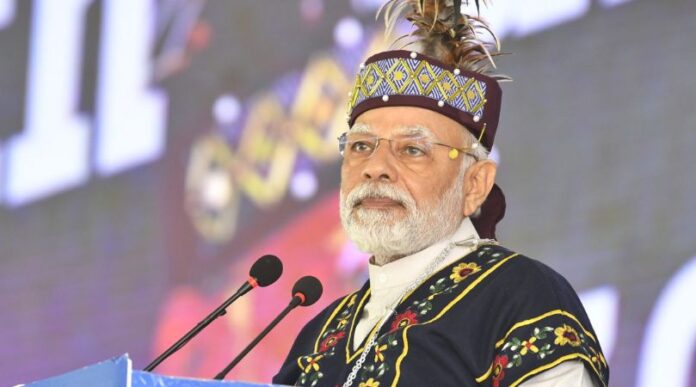SHILLONG:
The Achik Holistic Awakening Movement (AHAM) has reached out to Prime Minister Narendra Modi, urging the immediate inclusion of the Garo language in the Eighth Schedule of the Indian Constitution.
In a formal communication addressed to Prime Minister Modi, George Prince Ch. Momin, President of AHAM, made a heartfelt plea on behalf of his organization and the broader Garo Community. The memorandum implores the Prime Minister to consider the inclusion of the Garo language as an official language in the Eighth Schedule, underlining the significance of this move.
Momin pointed out that the Central government has previously incorporated various Indian languages into the Eighth Schedule based on recommendations from different committees. However, certain committees, such as the Pahwa Committee (1996) and Sitakant Mohapatra Committees (2003), have been unable to establish fixed criteria for language inclusion. This highlights the government’s willingness to acknowledge the complexities of linguistic diversity in India.
In 2003, the 93rd Constitutional Amendment granted the government the flexibility to explore the inclusion of additional Indian languages in the Eighth Schedule. As a result, Bodo, Dogri, Santali, and Maithili were considered for inclusion.
The Garo community, primarily residing in the Garo Hills region, earnestly hopes for the inclusion of the Garo language in the Eighth Schedule, given the parallels and justifications. They respectfully request that the Garo language be evaluated under the same criteria for inclusion in the Indian Constitution’s Eighth Schedule.
The Garo language and its associated literature have seen considerable development, thanks to the dedicated efforts of numerous writers. The language is enriched with a wide array of publications, including books, dramas, songs, and dances. Notably, over three major newspapers, fifty magazines, periodicals, and journals are published in the Garo language, although there is limited political and official support for the language’s inclusion. Nonetheless, discussions regarding the inclusion of the Garo language in the Eighth Schedule have even taken place in the Indian parliament.
The recent recommendation for the Garo language’s inclusion in the Eighth Schedule by the Meghalaya state government is seen as a positive step. The Garo community is hopeful that the Indian government will support this recommendation, acknowledging the significant impact it will have on the Garo Hills region and its people. Inclusion in the Eighth Schedule would grant the Garo language official status and recognition, affecting various aspects of life, such as education, literature, freedom of expression, and more.
Momin emphasized that the Garo language is not only a means of communication but also an essential aspect of daily life for the population of Garo Hills in Meghalaya, as well as significant populations in states like Assam, Arunachal Pradesh, Tripura, Nagaland, and even parts of Bangladesh. This recognition is due to the compatibility of the Garo accent with the Indian linguistic pattern.
In fact, a remarkable achievement was seen in the 2023 Higher Secondary School Leaving Certificate Examination, where a student from Bihar, not traditionally associated with the Garo language, achieved one of the highest scores in the subject. Furthermore, in the political arena, the Garo population is well represented by 24 MLAs from the Garo Hills region, with additional representation from other areas. Despite this extensive political presence, the Garo language has yet to be formally recognized as an official language in the Eighth Schedule of the Indian Constitution.


